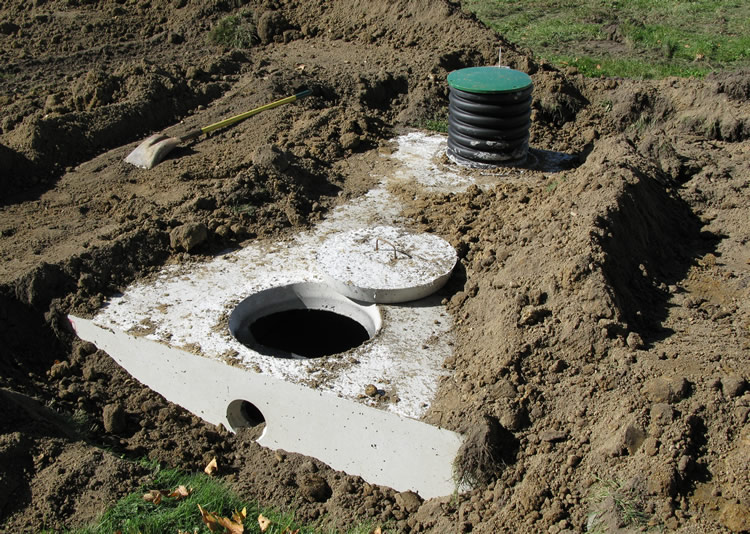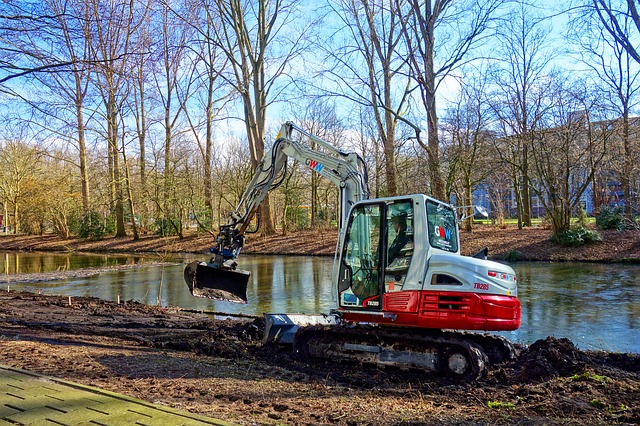
You should first determine how much snow falls on your property during winter. You will need the right equipment depending on how much snow you have. A snowplow is a good choice for large commercial properties. Clearing a lot snow and ice can be difficult with a shovel.
They can also use compactors to compress dirt and change the landscape of a site to optimize drainage direction. All in all, demolition and land clearing services help create an environment that can be used for construction projects with minimum disturbance to the surroundings.
Having a drainage ditch is important if you are planning on building a house in an area where you don't want to flood. If you have a basement, the drain will also prevent water from pooling in your area.
You should design the membrane you use to waterproof a variety of substrates. It should be at least six inches from the foundation. It should be able extend at least 12 ins. into the walls intersecting it.
There are many options available to waterproof your home. There are many membrane options available, including polyurethane, bentonite and HDPE sheets. Manufacturers recommend that you use a combination of different products.
Moreover, you should ensure that the excavation is done at the proper depth. The tank should be installed at least three feet from any structures. This will prevent seeping and flooding.
For a capillary barrier, you might also want to consider adding a drainage pad. A drainage mat can create a gap between the membrane of the foundation wall that is typically half-inch.
You should also ensure that excavations are done to the correct depth. You should place the tank at least three feet away from any structures. This will stop flooding and seepage.
The best and most cost-effective solution to removing snow from your house is to hire a snow removal company. Winter is the most popular time to book snow removal services. It is best to contact snow removal companies well before the snowy season begins to secure the best rates.
Excavation is a dangerous process. Proper engineering is necessary to protect workers and passersby. Choosing a skilled contractor will prevent soil compaction and ensure that landslides do not occur.
Waterproofing your foundation is essential for any home construction project, new or old. Water can seep into concrete cracks and cause structural damage. Waterproofing is also an option to prevent water from escaping your basement and flooding it.

Before hiring a demolition contractor, verify their credentials. Be sure to verify that they have a valid license and are skilled. Verify their reputation in the field. They should have previous projects and written information regarding their previous projects.
An excavation contractor will work with the general contractor, ensuring that construction is on track. They will prepare the area for utilities by digging trenches. They will also clean up the area and protect sensitive artifacts.
These professionals work closely with landscapers and outdoor architects to develop a complete plan for excavation of a residential home. They must ensure that the work is done in a safe manner without compromising the surrounding environment or neighboring properties. It can be an expensive process but it is crucial in creating a safe base for new construction or structural improvements.
A common waterproofing system includes a sheet membrane and rigid insulation boards. This system is installed over the foundation wall. The membrane is then fastened with anchors.
You may need to pay more if your land is in high-cost areas. The Contractors State License Board in California (CSLB), is the governing body of all contractors. Each month, they receive thousands of applications.
You have to follow certain steps whether you are installing your own toilet tank or hiring a contractor. It is important to get permission from your local government to excavate.
The national average price to remove a slab concrete is $1444. On average, you'll pay $2 to $6 per square feet. It is possible to pay anywhere from $2 to $6 per square foot depending on the area, the slab's thickness and the type of reinforcement. Also, it depends on whether you hire contractors or perform the work yourself.
Residential house excavation contractors are hired for rare occasions like digging a basement or foundation under an existing structure. They work with excavators to remove the existing concrete, grading, and landscaping and then excavating the hole beneath the house. Excavation services are provided by earthmovers and include cutting out driveways, curbs, gutters, and trenches.
Concrete is one of the hardest materials to remove once it's in place. To do it properly, you'll have to hire a professional. They'll use their expertise and tools to break up the slab and cart it away. Depending on the project size, it could take a few days to complete. The average cost to remove a slab of 200 square feet is $2,600.
There are many methods for concrete removal. However, the best one for you will depend on your specific needs. The size of your project and the concrete's volume are important factors. A few tools are all you need to remove a small slab.
An excavation contractor can prepare the ground, dig trenches, and connect utilities. Other services are also available. They can install sewers, underground utilities, and build roads.

If you're looking to hire an excavation contractor to work for you, make sure they are licensed. You should also verify whether the person is skilled. Interviewing several contractors is the best method to find an excavator. This will help you choose the right company for you.
A necessary step in any construction project is getting your site ready for the excavating contractor. It is essential to protect your property and ensure the safety of your site.
An excavation contractor will work with the general contractor, ensuring that construction is on track. They will prepare the area for utilities by digging trenches. They will also clean up the area and protect sensitive artifacts.
You have to follow certain steps whether you are installing your own toilet tank or hiring a contractor. It is important to get permission from your local government to excavate. Consider the size of the tank you want to install. The size of the tank will impact the cost of your project. A large tank can also impact how much landscaping is required.
Erosion control is an essential practice to prevent water pollution, soil loss, and habitat or human property loss. Excavators use physical barriers, retention basins, and other methods to manage soil erosion. They also perform soil remediation to neutralize or remove hazardous soil from construction sites.
Demolition is a difficult process and can be very time-consuming. A professional demolition contractor can help with planning your demolition and keeping your project on time.
Whether your driveway or patio has a crack or your house needs a foundation repair, hiring a concrete removal expert is the best way to ensure your property is safe and your project is done right.
You can also get help from an excavation company with demolition. This is a great option to prepare the property for a house or to construct a driveway. They can also fix drainage problems and improve the property's overall structure. Professional contractors can help keep your construction project on track and within budget.
A few other steps to consider when doing site preparation include stockpiling gravel, which can prevent water from flowing freely. Also, you'll need to make sure your site meets local zoning requirements.
It is essential to prepare your site before you hire an excavating contractor. This is an important step to ensure safety and protect your property.
Before you can start marking your utilities, Get the permissions you need from your city administrator. An inspector may be required if an area is already zoned to construction.

It doesn't really matter if you have concrete patios, sidewalks, or driveways, it can be hard to remove. Consider the size and cost of the concrete slab, as well the reinforcements that were used to support it. Once you have decided on a plan, you can either hire someone to help or do the work yourself.
Before you begin waterproofing your foundation, make sure that you know the flood zone in your area. If you have any water problems, you may be covered by your insurance company for cleanup costs.
Site preparation is a process that involves many different tasks. It can include removing old trees, clearing a lot of debris, and removing unwanted vegetation. Depending on the site, the process may include demolition of existing structures or the removal of underground infrastructures. It can also include test drilling and excavation to provide the best possible foundation for your building.
Site preparation can be a complex process and requires skilled professionals. A team of skilled professionals can make sure your project runs smoothly and minimizes the chances of errors or delays. Your building's life expectancy can be extended by getting your site ready.
An excavation contractor will work with the general contractor, ensuring that construction is on track. They will prepare the area for utilities by digging trenches. They will also clean up the area and protect sensitive artifacts.
It can be dangerous, even though it may appear like an easy job. It is essential to have the proper safety equipment in place and follow the proper procedures to protect yourself and your concrete contractor. You need to be careful not to get caught in any machinery.
